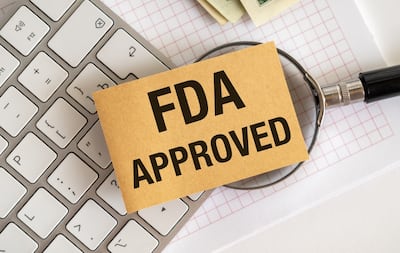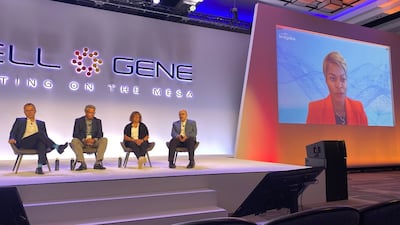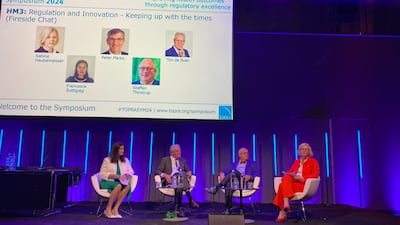Rare Diseases

Former Food and Drug Law Institute CEO Amy Comstock Rick will take on patient engagement for the US FDA Rare Disease Hub as director of strategic coalitions.

US FDA’s Rare Disease Innovation Hub should shepherd the practical transformation of the diverse wealth of patient-generated data held by advocacy organizations into information for regulatory use, Reagan-Udall public meeting hears.

Another record-breaking year for novel approvals looks out of reach, but the six novel agents with November goal dates show the continued strength of rare disease drug development.

Woodcock and the Haystack Project want to modify a foundational concept of modern FDA drug efficacy assessments, which may be seen as an attempt to more formally codify and define regulatory flexibility.

Lyfgenia and Zynteglo comprise complex mixtures of transduced cells that represent different active ingredients, the company said in administrative appeals to the FDA. Two lawmakers also raised bipartisan concerns about the agency’s decision on the voucher request for the sickle cell disease treatment.

Remarks at the NORD Breakthrough Summit from the FDA’s Lola Fashoyin-Aje may suggest the agency is becoming more comfortable with single-arm trials.

A court order encompassing funding, drug pricing, clinical trials and overall policy implementation aspects is expected to cause a paradigm shift in the treatment of rare diseases in India. Sarepta, Roche and Sanofi are among the companies that have been part of pricing discussions.

At the advisory committee review of Stealth’s Barth syndrome treatment elamipretide, Office of New Drugs Director Peter Stein clarified the circumstances where clinical data in a related indication could serve as confirmatory evidence for a single adequate and well-controlled study.

Meeting the regulatory gold standard for drug candidates in ultra-rare diseases can be impractical, a regulatory expert says, but greater collaboration and shared insights from regulatory reviews could help find a viable path forward.

Members of the Cardiovascular and Renal Drugs Advisory Committee repeatedly challenged Stealth’s assertion that a new randomized trial in Barth syndrome was not possible, but also said potential functional unblinding and other challenges could compromise a new study.

The Cardiovascular and Renal Drugs Advisory Committee voted 10-6 that efficacy had been shown for the ultra-rare disease, but even panelists in the majority questioned whether the product satisfied the threshold requirement for an adequate and well-controlled study.

The head of the US FDA’s drug center suggests that economic factors, including the Inflation Reduction Act, are potentially more important pathways shaping the focus of research and development than regulatory flexibility.

A US National Academy of Sciences, Engineering and Medicine panel is considering whether biomedical innovation is aligned with public health needs. The resulting report could impact FDA and federal policy on rare disease and research and development incentives.

Nipocalimab is an investigational FcRn blocker for treating generalized myasthenia gravis that was also recently filed for regulatory review in the US.

The Cardiovascular and Renal Drugs Advisory Committee will consider whether open-label extension data from a randomized trial that failed its primary endpoint, along with a historical control comparison, are enough to support approval in the ultra-rare disease.

The number of standard and priority reviews also decreased significantly in FY 2023 compared to the previous year, which caused the fee for redeeming a voucher to rise.

US and EU regulators have invited two companies to work with them on a pilot scheme for assessing drugs for rare genetic diseases, a move that the European Medicines Agency’s Emer Cooke said would help improve “global alignment.”

The US FDA commissioner also said the hub is looking for an executive director who will work with the CBER and CDER heads, who will serve as co-leads.

An FDA question to a patient concerned about the negative impacts of the CAR-T boxed label warning during a recent listening session indicates the agency may be thinking about improving its dissemination of the information.

High unmet needs is among the terms and definitions in the EU’s regulatory reform package that are “very subjective” and require more clarity to improve predictability for the pharmaceutical industry, EUCOPE’s secretary general, Alexander Natz, tells the Pink Sheet.